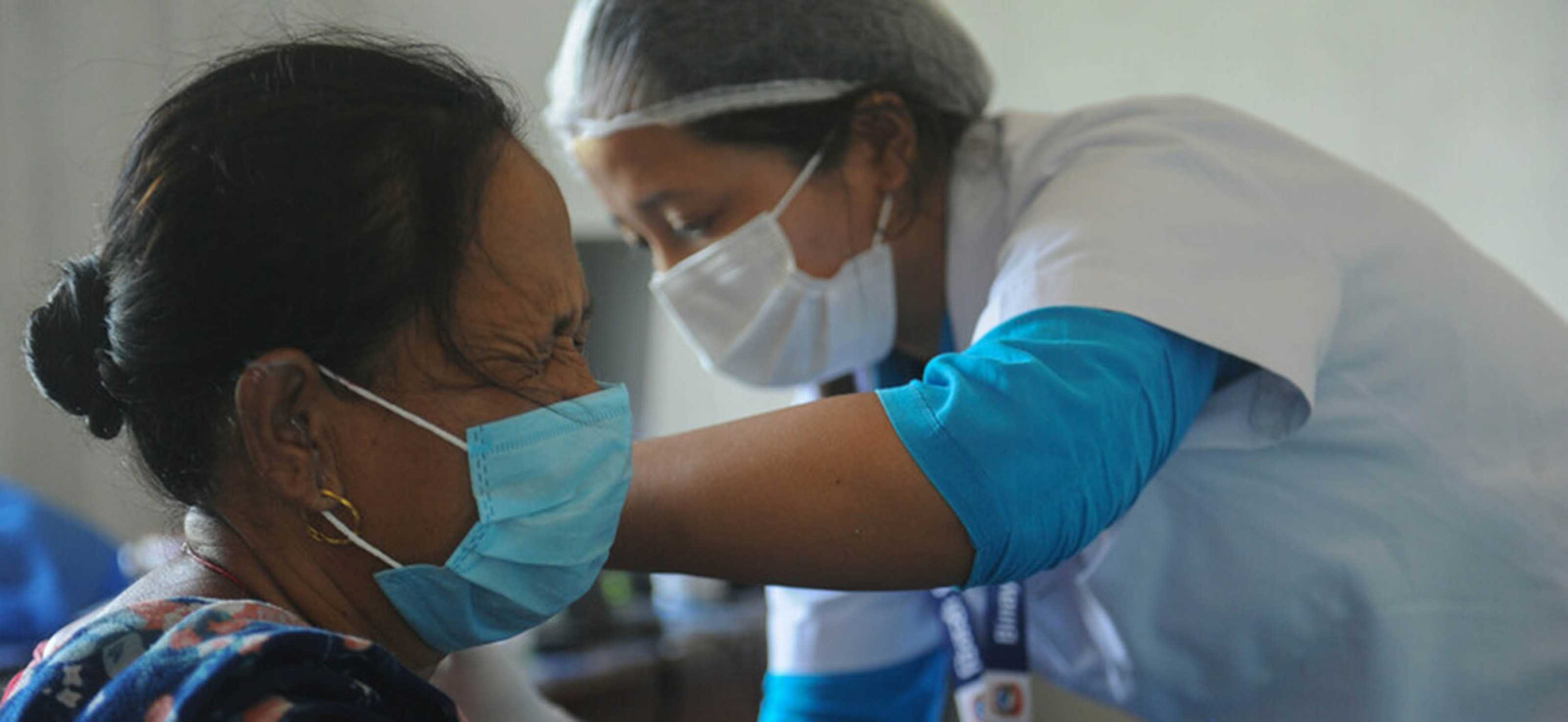A line of people winds out the door of the Triveni Basic Health Post in Nepal. Those waiting are masked and socially distanced, fully aware of the risks of COVID-19. After all, they are in line to be vaccinated against COVID-19— finally — after many months of awaiting their turn.
Front-line health worker Ramesh Kumbhakar, who oversees the health post, is happy to see the day's turnout. The spring of 2021 saw a sharp spike in the number of cases and deaths from the virus in Nepal, and the devastation and grief are still strong. The best way to prevent future spikes and beat the pandemic, Ramesh says, is that "people above age 18 need to get vaccines as soon as possible."
For multiple reasons, this has not been the easiest task for small health centers like his.
Providing COVID-19 vaccines and community awareness in Nepal
Although COVID-19 vaccines have been readily available in the United States for months, poorer countries like Nepal have had difficulty obtaining and storing vaccines — especially for rural and hard-to-reach communities.
With the generous support of our donors, Corus World Health has helped health centers in Nepal to obtain, store and deliver vaccines in vulnerable communities, supporting local health workers to plan and implement vaccine campaigns. We've also helped to educate communities on the use of masks and social distancing as well as the safety and effectiveness of vaccines for preventing serious illness and death.
"Initially, people did not come to get the vaccines due to fear for what they might do," Ramesh says. But, thanks to the awareness campaigns, "recently more people have been coming with the hope that the vaccines will save them."
Corus World Health’s history of vaccination
Corus World Health has nearly two decades of experience in facilitating vaccination campaigns, primarily for childhood illnesses like measles, in some of the world's most challenging places including South Sudan and the Democratic Republic of Congo— managing complex cold chain systems and awareness activities to reach populations that others can't.
As the need for COVID-19 vaccines remains critical in the world's poorest communities, we're eager to leverage our successful history of vaccination to bring these lifesaving, pandemic-ending vaccines in reach for everyone, everywhere.

